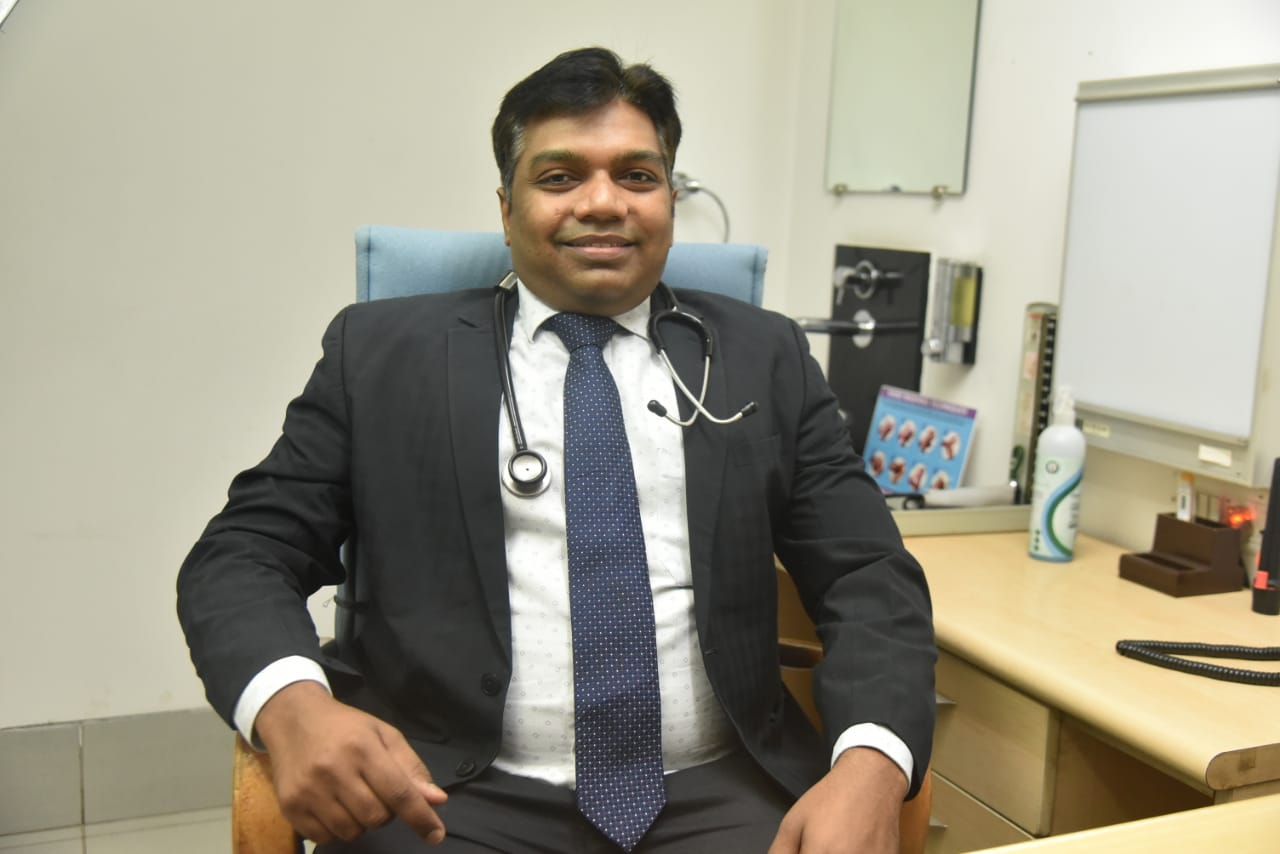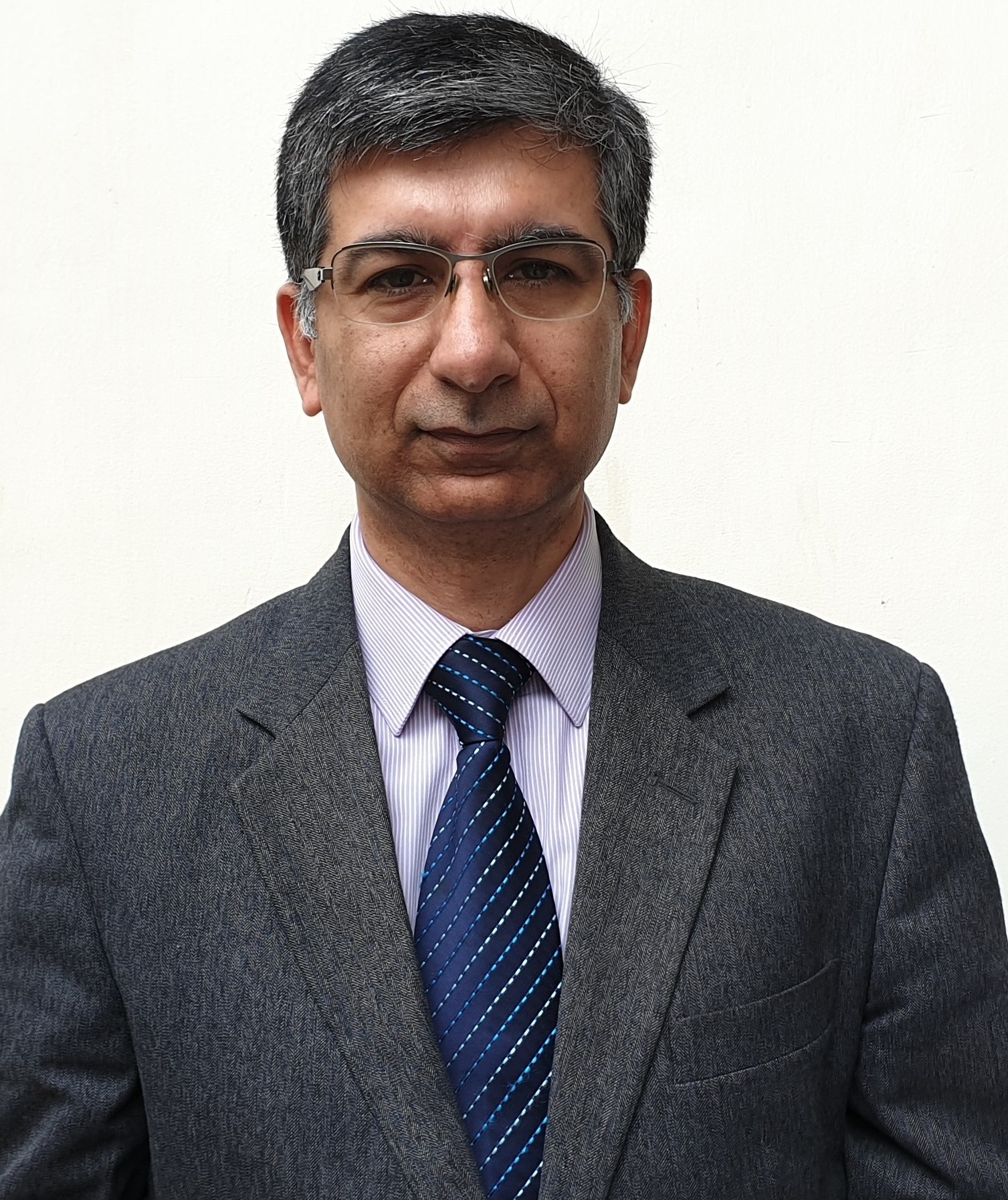Total Hip Replacement
Book Appointment
Hip replacement (total hip arthroplasty) is surgery to replace a worn out or damaged hip joint. The surgeon replaces the old joint with an artificial joint (prosthesis). This surgery may be a choice after a hip fracture or for severe pain because of arthritis.
Various types of arthritis may affect the hip joint:
- Osteoarthritis: This is a degenerative joint disease that affects mostly middle-aged and older adults. It may cause the breakdown of joint cartilage and adjacent bone in the hips.
- Rheumatoid arthritis: This type of arthritis causes inflammation of the synovial lining of the joint. It causes extra synovial fluid. It may lead to severe pain and stiffness.
- Traumatic arthritis: This is arthritis is caused by an injury. It may also damage the hip cartilage.
The goal of hip replacement surgery is to replace the parts of the hip joint that have been damaged. It also helps relieve hip pain that can’t be controlled by other treatments.
A traditional hip replacement involves an incision several inches long over the hip joint. A newer approach uses 1 or 2 smaller incisions to do the surgery. This is called minimally invasive hip replacement. But the minimally invasive procedure is not suited for all people who need hip replacement. Your healthcare provider will figure out the best procedure for you.
Why might I need hip replacement surgery?
Hip replacement surgery is a treatment for pain and disability in the hip. Osteoarthritis is the most common reason for hip replacement surgery.
Osteoarthritis causes loss of joint cartilage in the hip. Damage to the cartilage and bones limits movement and may cause pain. People with severe pain from degenerative joint disease may not be able to do normal activities that involve bending at the hip. These activities include walking and sitting.
Other forms of arthritis such as rheumatoid arthritis and arthritis that results from a hip injury can also damage the hip joint.
Hip replacement may also be used to treat certain hip fractures. A fracture is an injury often from a fall. Pain from a fracture is severe. Walking or even moving the leg causes pain.
If other medical treatments don’t control your arthritis pain, your healthcare provider may recommend a hip replacement. Some medical treatments for degenerative joint disease may include:
- Anti-inflammatory medicines
- Glucosamine and chondroitin sulfate
- Pain medicines
- Limiting activities that are painful
- Assistive devices for walking such as a cane
- Physical therapy
Your healthcare provider may have other reasons to recommend a hip replacement surgery.
What are the risks of hip replacement surgery?
Any surgery can have complications. Some possible complications may include:
- Bleeding
- Infection
- Blood clots in the legs or lungs
- Dislocation
- Need for revision or additional hip surgery
- Nerve injury that causes weakness, numbness, or both
You may have other risks depending on your specific health condition. Discuss any concerns with your healthcare provider before the surgery.
How do I get ready for hip replacement surgery?
- Your healthcare provider will explain the procedure to you and offer you the chance to ask any questions that you might have about the procedure.
- You may be asked to sign a consent form that gives your permission to do the procedure. Read the form carefully and ask questions if something is not clear.
- In addition to a complete health history, your healthcare provider may do a physical exam to make sure that you are in good health before having the surgery. You may have blood tests or other diagnostic tests.
- Tell your healthcare provider if you are sensitive to or are allergic to any medicines, latex, tape, and anesthesia (both local and general).
- Tell your healthcare provider about all medicines you are taking. This include prescription and over-the-counter medicines, and herbal supplements.
- Tell your healthcare provider if you have a history of bleeding disorders or if you are taking any blood-thinners (anticoagulants), aspirin, or other medicines that affect blood clotting. You may need to stop taking these medicines before the surgery.
- Tell your healthcare provider if you are pregnant or think you may be pregnant.
- You will be asked to fast for 8 hours before the surgery. This usually means after midnight.
- You may get medicine (sedative) before the surgery to help you relax.
- You may meet with a physical therapist before your surgery to talk about rehabilitation.
- If you smoke, stop before your surgery. Smoking can delay wound healing and slow down the recovery period.
- Lose weight if you need to.
- Do conditioning exercises as prescribed to strengthen muscles.
- Arrange for someone to help around the house for a week or two after you are discharged from the hospital.
- Based on your health condition, your healthcare provider may order other specific tests or exams.
Who doesn't want a stout physique? Who would want to walk with bends and pains? All hail to the advancement in medical sciences that have made replacement of a deformed body part possible! Hip replacement surgery is a medical procedure that removes the damaged portions of the hip joint, and diligently replaces it with an artificial joint, usually composed of metal and plastic. Prosthesis, commonly known as artificial joints, reduces the pain and significantly improves it's functioning. Medically known as hip arthroplasty, hip replacement is an option at the last resort. It means when the pain starts interfering in your routine activities, and non-surgical treatments are no longer effective, then it comes as a robust rescue.
How is total hip replacement performed?
A total hip replacement surgery in Gurgaon uses traditional techniques or updated minimally-invasive plans. By and large, it's the size of the incision that makes all the difference. Hip replacement surgery involves the following steps-
- General anaesthesia administers to relieve your body from any pain whatsoever.
- An incision on the front or side of the hip, through layers of tissue.
- The incision is followed by removing deformed and dysfunctional bone and cartilage to keep the healthy bone intact.
- Subsequently, the prosthetic socket is implanted into the pelvic bone using cement or some unique material that firmly joins the freshly planted joint to the remaining bone.
- A round ball placed on the top of the femur is replaced with a prosthetic ball. It adjoins to a stem that rightly fits into the thigh bone.
- Consequently, the muscles reattach, and the incision site methodically seals.
Since the recently adopted minimally invasive techniques make a comparatively smaller incision, the blood loss is less and the recovery even quicker in the hip replacement surgery in Gurgaon.
How long does it take to recover from a total hip replacement surgery?
Right after the hip replacement surgery in Gurgaon, surgeons move you to a recovery area. A surgeon would carefully monitor your blood pressure, pain, alertness and pulse. Depending on the complexity of your case, you'll either go home the same day or after a hospital stay for a night or two. Generally, physical therapy helps you recover quickly.
The recovery primarily depends on how dedicatedly you follow the post-operative care and recovery tips. It is after six to twelve weeks post-surgery that you'll fix an appointment with your doctor to ensure timely healing. You can expect to resume your day to day activities by this time if your recovery is progressing well. Further recovery from your hip replacement in Gurgaon takes six to twelve months.
What Activities Should I Avoid After Total Hip Replacement Surgery?
The initial six to twelve months of the surgery are delicate. Total hip replacement surgery in Gurgaon would require you to avoid the following activities-
- Hip flexion past 90 degrees- it is advised not to bend the hip too much or lift the knee very high as it surges the risk of hip dislocation. Using an elevated seat for the toilet would be convenient.
- Leg crossing- while lying down, do not cross legs over one another. If you cannot get rid of this inescapable habit of yours, doctors may recommend a unique wedge called abduction.
- Walking pigeon-toed- after a hip replacement surgery, you'd require to keep the toes straight. It would help if you were very careful about the internal rotation of your hip. , one should ensure that you don't rotate your hip while walking.
- Rigorous climbing- avoid climbing up and down the stairs to prevent unnecessary pressure on the freshly replaced hip.
Also, it would not be wise to expect a complete retrieval after a hip replacement. You'd still need to be vigilant and sensible while performing the daily activities. Avoid heavy exercises and sports.
FAQ
1. When would someone need a total hip replacement?
2.What are the risks associated with a hip replacement in Gurgaon?
- Fracture
- Dislocation
- Blood clots
- Infection
- Loosening
3.How is physical therapy beneficial?
4.How long do hip implants last?
5.How long does total hip replacement surgery take?
6.Why Choose Us for total hip replacement surgery in Gurgaon?
7.What is the cost of total hip replacement surgery in Gurgaon?
Our Best Bone Specialist & Best Joint Specialist Doctors in Gurgaon

Dr. Prince Gupta
MBBS, M.S (Ortho),
MCh Orthopaedics – USAIM
Contact No :
+91-9999965564
Email:
dr.princegupta@gmail.com

Dr. Anubhav Gulati
MBBS, MS Ortho
MRCS(1), Edinburgh
Contact No :
+91-8826612719
Email:
dranubhavgulati@gmail.com
Columbia Asia Hospital, Ansal Plaza Near Gol Chakkar, Block F, Palam Vihar, Gurugram, Haryana 122017
10 AM - 4 PM
Monday to Saturday
Sunday Closed
